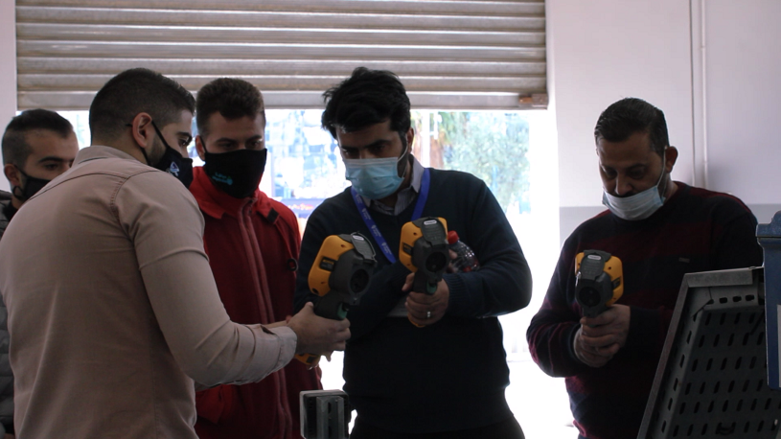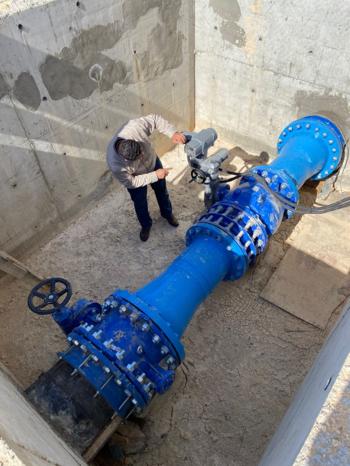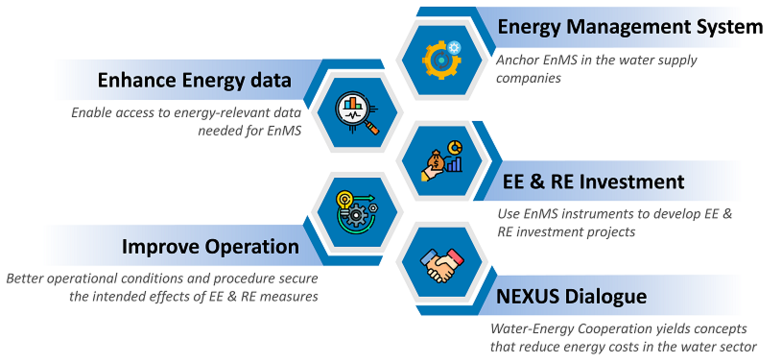agricultural expansion and the impacts of global climate change, have increased the pressure on Jordan’s scarce water resources, which have been heavily overused for years. Also, energy costs for the water sector have increased with the costs of operation reaching more than 50 per cent of the water sector bill in 2021.
Objective
Jordan’s water sector is improving its energy management by increasing energy efficiency (EE) and its share of renewable energy (RE), thus moving faster towards the EE and RE policy targets while also reducing the country’s high energy costs.
Approach
The project aims to achieve its goals by:
- improving the skills of the staff and organisational capabilities in the water sector,
- establishing and implementing a standardised Energy Management System (EnMS),
- and enhancing the Nexus dialogue with the energy sector.
The project combines energy-related, methodological and process consulting to develop measures that optimise Jordan’s energy management and to increase renewable energy deployment in selected operational units (multi-level and multi-stakeholder approaches) of the water sector. The relevant actors, i.e., the Water Authority of Jordan, the Ministry of Water and Irrigation, and the Water Utilities are given support to consolidate their respective roles and functions. Cooperation with the private sector is facilitated where feasible, e.g., as investors in EE/RE measures or as service providers, for instance through performance-based maintenance contracts.
Last update: May 2023



